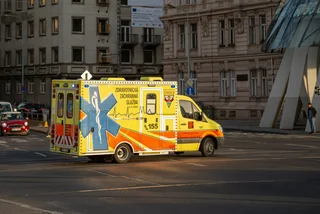In recent days, many people in Czechia have been contributing to the mass fundraiser for a two-year-old boy named Martín, who is fighting an ultra-rare genetic disorder known as Aromatic L-amino Acid Decarboxylase (AADC) syndrome.
Due to Czech health insurance companies refusing to cover the cost of treatment, Martín’s parents took to the internet to secure the almost CZK 100 million needed to finance the required treatment for the young boy. In just a matter of days, the fundraiser yielded around CZK 108 million.
AADC syndrome profoundly affects the nervous system due to a neurotransmitter deficiency, thereby affecting the neurological development and function of those afflicted.
Controversy over insurance payments
The core of the issue lies in insurance companies' decisions to decline coverage for treatment expenses. Under the provisions of the Public Health Insurance Act, insurers may reimburse costs in exceptional circumstances when the treatment is the sole viable health option. However, the insurance company's refusal has triggered social media criticism and raised questions concerning its reasons.
Speaking to Seznam Zprávy, medical expert and former health ministry spokesperson Tomáš Cikrt acknowledges the insurance company's challenging position given the unprecedented nature of the case. Despite gene therapy for AADC syndrome gaining EU approval, concerns persist regarding its efficacy and safety.
Another complication arises from the fact that the drug's manufacturer has not registered it in the Czech Republic, impeding negotiations on pricing. Barbora Dubanská, a specialist in health law, points out that the final cost of CZK 100 million may be subject to adjustment due to potential negotiations and risk-sharing contracts with insurance companies.
Issues with the manufacturer
Czech Health Minister Vlastimil Válek underscores the nation's adaptable legal framework, permitting fast reimbursement for rare drugs when requested by manufacturers. In this instance, despite the drug's registration under exceptional EU conditions, the manufacturer did not request reimbursement. This made the insurance company unwilling to pay for the medicine.
The Czech Industrial Insurance Company spoke about the necessity of assessing the drug's payment via the State Institute for Drug Control and highlighted the need for a uniform procedure in such instances. Guidance from the Supreme Administrative Court underscores the importance of evaluating the exceptional nature of individual cases.
The case of young Martín accentuates the ethical quandary inherent in healthcare allocation. As the country contends with comparable extraordinary cases, experts advocate for consensus-building and a structured approach to ensure equitable and timely access to life-saving treatments. Many say that treatment options must become cheaper and that insurance companies should be more willing to cover them.
Despite the rejection, Martínek's parents have initiated an appeal through a review board, yet the outcome remains uncertain. Ultimately, this case emphasizes the need for a comprehensive framework addressing exceptional healthcare situations while reconciling ethical considerations with fiscal pragmatism.












 Reading time: 2 minutes
Reading time: 2 minutes 



























